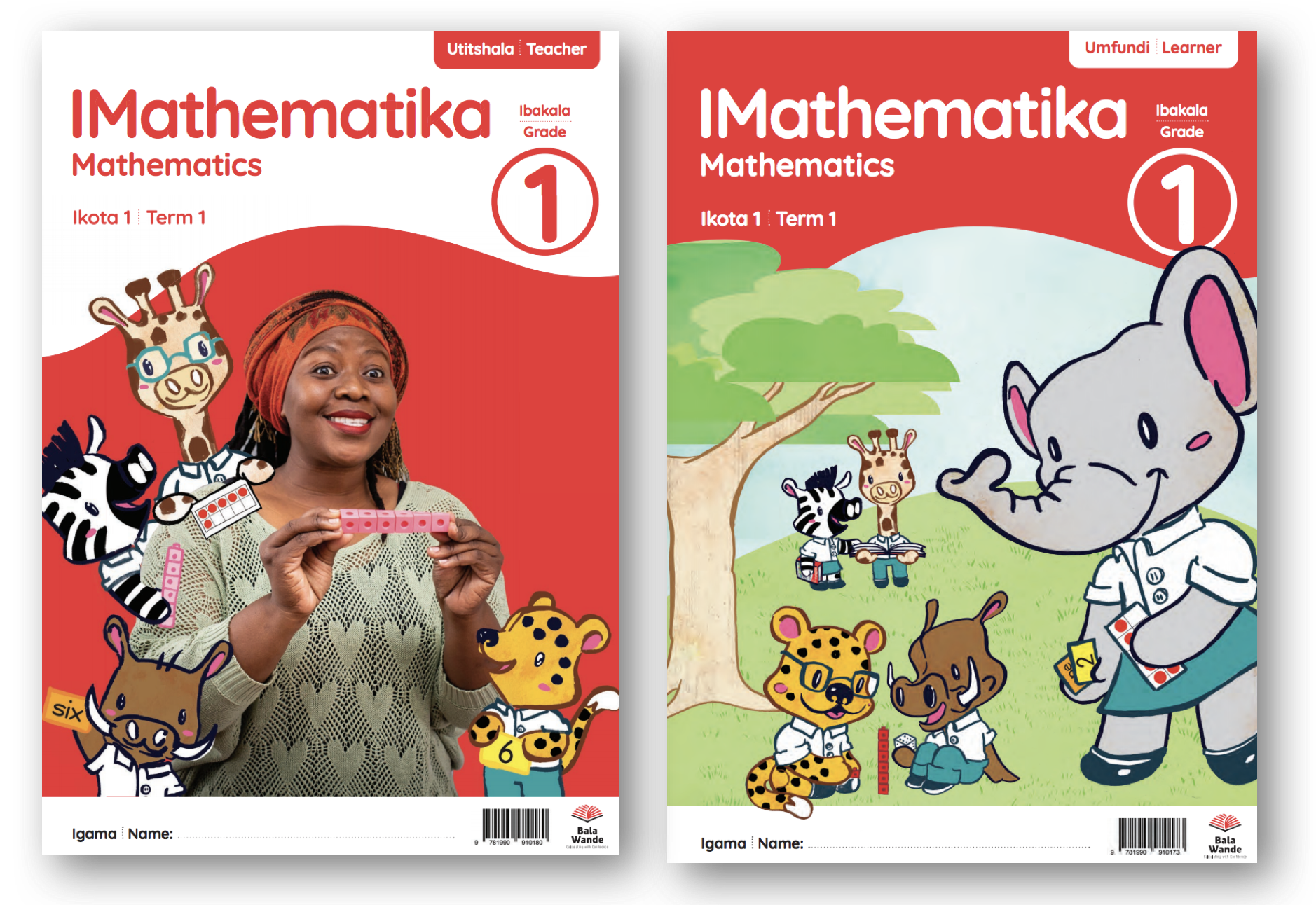
The Board of Funda Wande is excited to announce that it has finalized its appointment of Nangamso Mtsatse as the new CEO of Funda Wande. Following an open and competitive process with over 80 applications, Nangamso emerged as the best candidate to lead Funda Wande into its next chapter. As Professor Sizwe Mabizela, Chair of the Board and Vice Chancellor of Rhodes University said following the appointment:
“It was the unanimous decision of the board that Nangamso not only stood head and shoulders above the other candidates but is also an exceptional leader with a clear vision to lead Funda Wande into its future. Nangamso is both passionate about literacy and social justice, but also about Funda Wande. The board has full confidence that Nangamso will build on the very strong foundation that Nic has established at Funda Wande and we look forward to working with our donors and partners in advancing our collective objective of giving young people of this country the best start in life. She has our full support. These are exciting times!”
Nangamso is an experienced and respected leader at Funda Wande. Her previous portfolios include being Funda Wande’s Versioning & Relationships Lead, and most recently, the Head of Literacy. Nangamso is also completing her PhD in Education Policy at Stellenbosch University and an affiliated researcher at the Research on Socioeconomic Policy (RESEP) group. She has published her research in the South African Journal of African Languages, the Journal of Education, and the South African Journal of Education (CV here). In January 2019 she was also selected by the International Literacy Association (ILA) as one of the “Top 30 Under 30” researchers around the world. This list “celebrates the rising innovators, disruptors, and visionaries in the literacy field.” Nangamso is currently the Co-ordinator of the ongoing collaboration between Rhodes University and Harvard’s Graduate School of Education, a partnership aimed at strengthening the Advanced Certificate in Foundation Phase Literacy offered at Rhodes. Last year Nangamso presented at the eNSPIRED International Dialogue on Equity in Education. Her background video gives an excellent overview of the organisation and her role at the time.
Closer to home, Nangamso has contributed to a number of important initiatives in the South African literacy sphere. She is a board member of WordWorks, a prominent literacy NGO in the country, as well as a Section 11 Committee Member of South African Human Rights Commission’s (SAHRC) “Right to Read and Write” and sub-committee chair of African Languages in the committee. She was also one of the co-authors of the influential “Benchmarking early grade reading skills in Nguni languages” report released in October last year.
What’s in store?
When asked how she wants to lead, Nangamso says she is a team player and prefers leading collaboratively:
“In my culture we have a saying that if you want to go far you have to go together. We are not the only people working in this space and so we need to collaborate, but I also know that we have a big contribution to make as Funda Wande. I’m looking forward to working with the team to get us closer to our 2030 goal: All children reading for meaning by the age of 10 by 2030.”
In her last of four case studies during the recruitment process she presented her vision of Funda Wande to the full Board and explained “How do we get there?” Her five strategic priorities were “(1) People: Attracting high quality people and making Funda Wande a workplace of choice, (2) Programs: How do we adapt to the COVID-19 reality, (3) Systems and Processes: Building the processes we need to avoid burnout and stress, (4) Advocacy and research: Ultimately government has to solve this problem, we can only try and figure out “what works” and what is scalable, and (5) Funding: Although we are fully funded for the next 3 years, Funda Wande is only possible with ongoing financial support from our donors so nurturing those relationships is key.”
Nangamso takes over from Nic Spaull who founded Funda Wande and is the outgoing CEO. Nic is moving out of Funda Wande and will focus on research and advocacy in the basic education space, and also allow him to spend more time on teaching at Stellenbosch where he is an Associate Professor in the Economics Department. Given that there is a lot to hand-over, and on the advice of the Board, there will be a handover period where Nangamso will be ‘CEO Designate’ as the leadership portfolio is handed over from Nic to Nangamso. Nic will remain available for advice and guidance to both Nangamso and the board in the new phase of the organisation. After the Chair’s announcement that she was the successful candidate, Nic also expressed his full confidence in Nangamso’s abilities to lead the organisation:
“I have no doubt that Nangamso will thrive in this role and that she is the right leader for this next stage of Funda Wande’s journey. We have a saying at Funda Wande that “authority follows observed competence” and Nangamso has proved herself competent at every task she’s been given and every team she manages. She is a very different type of leader to me and she’ll be the first person to tell you that. But I also think that’s why she’s the right person for the job. She has a really deep understanding of, and passion for, the sector and also has the full buy-in and support of the existing ExCo and the management team. That was really important for me.”
It gives us great pleasure as an organisation to welcome Nangamso Mtsatse in her new role as CEO as we move even closer towards our goal of ensuring that all children read for meaning and to calculate with confidence by age 10 by 2030!

























